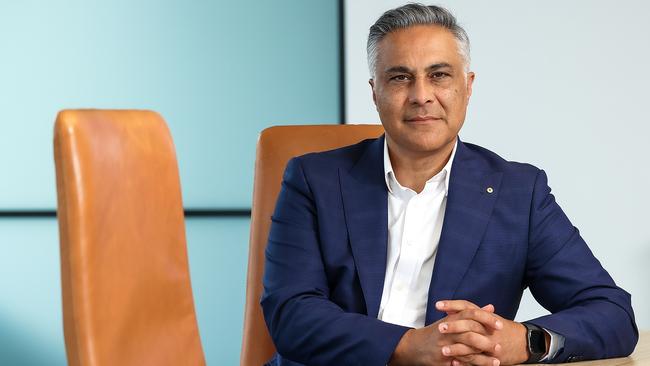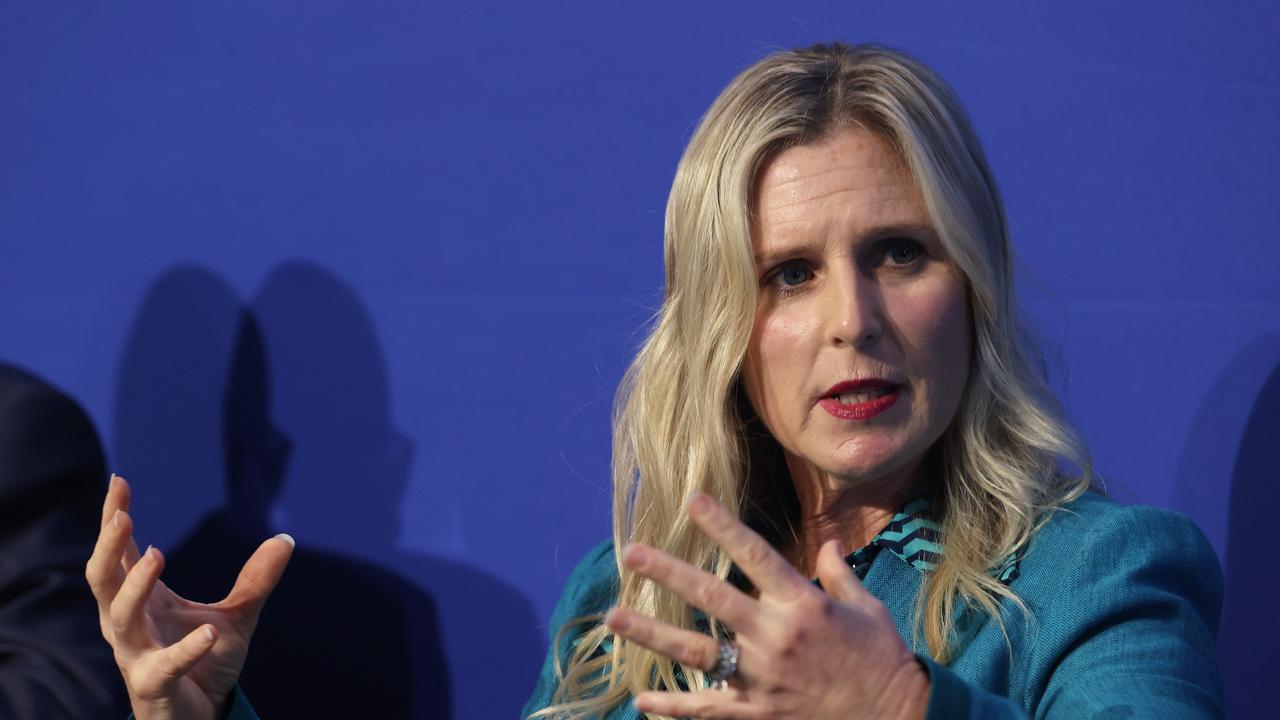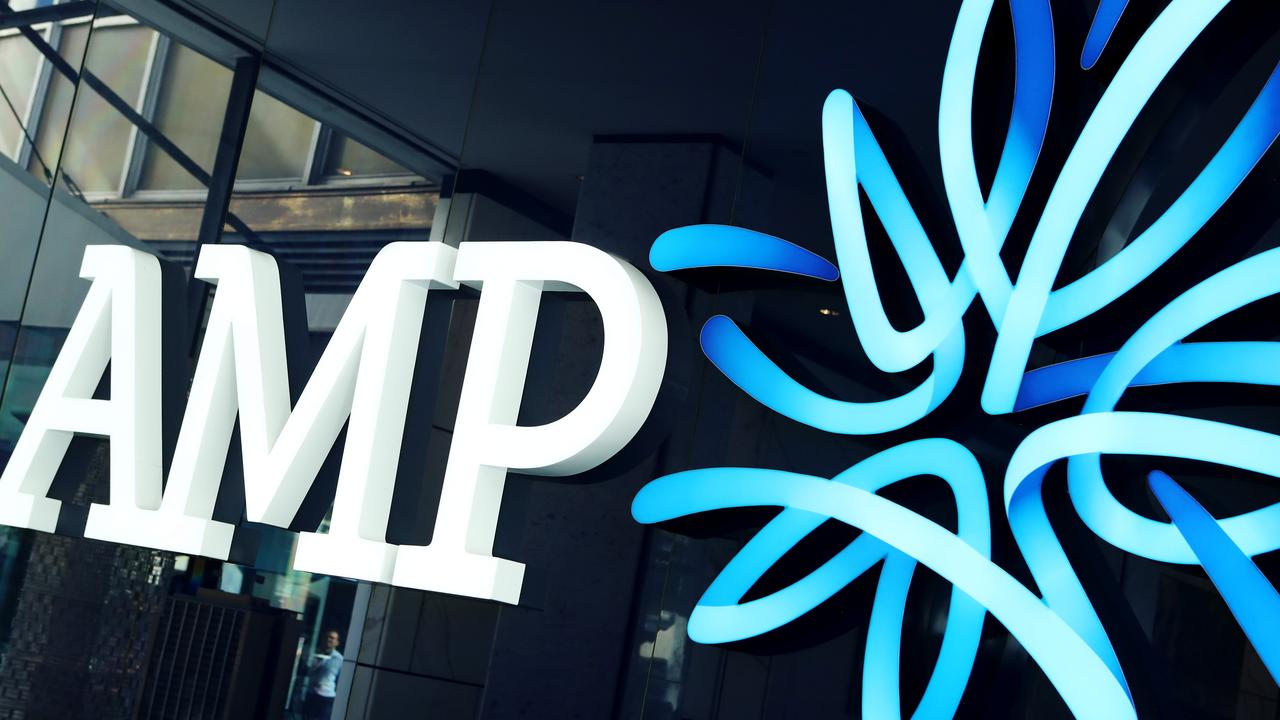Ahmed Fahour’s big plans for Latitude Financial following ASX listing
Latitude Financial CEO Ahmed Fahour is looking not only to disrupt the major banks but also forge partnerships to offer more flexible consumer finance packages.

Latitude Financial chief executive Ahmed Fahour is looking not only to disrupt the major banks but also forge partnerships with them to offer more flexible consumer finance packages as Latitude finally makes its debut on the local stock exchange.
Latitude will list about one-third of its shares on the ASX on Tuesday after raising $200m from investors, valuing the company at $2.6bn.
For Mr Fahour, it marks the first time he has helmed an ASX-listed company in a career that has included running Australia Post, NAB’s and Citibank’s respective Australian operations, as well as a stint at Boston Consulting.
But he prefers to talk about the transformation of Latitude, previously known as GE Money, and its success across the interest free pay by instalments space.
“I’m over 50 years old, so I’m an old man. I don’t need any of this (personal success) kind of stuff to get me excited. What gets me really excited is to see people and companies achieve their potential,” Mr Fahour told The Australian.
“At Latitude, nothing would give me greater pride than to see our potential realised as the great disrupter of the major banks.”
But Mr Fahour believes there is also room for Latitude and the big banks to do business together.
Already, Latitude provides personal and car loans to Kiwibank, owned by New Zealand Post. Mr Fahour believes Latitude could extend similar partnerships across Australia and beyond as the banks increasingly focus on their core business.
“There is an opportunity now that the major banks are starting to focus on their main game. Their main goal is either corporate and business lending, home loans or it’s deposits — that’s where 97 per cent of their assets are.
“The consumer finance side is 3 per cent of their business, and that requires a lot of investment.
“There is only one organisation that does not compete with them in home loans — we don’t compete with them in deposits, corporate and business lending — that they could do business with. I’d like to think we could help them in that opportunity.”
And it is the non-bank lending patch where Mr Fahour seems content for Latitude to stay, for the moment. Latitude has been tipped as expressing an interest in the Australian assets of Mr Fahour’s former employer Citibank.
Citi is looking to sell its Australian credit card and consumer banking business, attracting plenty of interest, with Latitude thought to be in the mix.
Mr Fahour didn’t outright refute the chatter, but said: “They are trying to sell a retail bank, and we’re not a retail bank. We actually disrupt the banks, so given that, I think you have your answer.”
Asked if it would be a different proposition if Citi split the sale of its assets, and its credit card business was offered as a standalone, Mr Fahour appeared lukewarm. “Our credit cards are only 5 per cent of our receivables. That’s all it is. It’s the smallest of our four big product lines.
“We’re a disrupter of cards. We would prefer you to use our instalments product and pay it off over time, not use your credit card.”
Under the listing, Latitude’s owners, KKR, Värde Partners and Deutsche Bank, will see their combined stake fall to 66.4 per cent. Meanwhile, 7.7 per cent of the shares will be offered through the IPO at $2.60 per share, Japan’s Shinsei Bank will take 10 per cent for $300m, and minority shareholders will take a further 14 per cent of the stock. Latitude also gave its 1300 employees $1000 worth of shares for free, with 27 per cent topping up that holding out of their own pocket, Mr Fahour said.
This equates to about 30 per cent of Latitude trading as a free float, which Mr Fahour said would qualify the company to be indexed in the ASX 200 within six months.
The move comes after Latitude was forced to pull its second IPO attempt in October 2019 after it failed to secure enough support from offshore investors. That came 12 months after it pulled its first IPO attempt.
But Mr Fahour said the timing was right this time.
“We have done really well during the pandemic. I think people looked around the stockmarket and said ‘Gee, they’re in the instalments business, they’re in consumer finance disrupting business and they make money — they paid a 6 per cent dividend yield’.
“So it ended up being a very different process this time around.”







